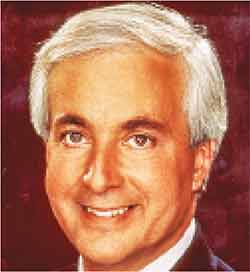The Moon is an expensive mistress
 by Jim Powers
by Jim Powers
This email address is being protected from spambots. You need JavaScript enabled to view it.
In 1966, the writer Robert Heinlein wrote a science fiction novel about a lunar colony’s revolt against absentee rule from Earth. The moon has become a penal colony with 3 million inhabitants overseen by a supercomputer named Mike. The computer has become self-aware and keeps messing with the humans. A Tech is sent from earth to fix the computer, who convinces Mike to stop with the pranks. There’s a revolution. It’s a good read, so no spoilers here. Give it a read.
For those not familiar with the genre, Sci-Fi, especially in the 1950s and 1960s, was often used as a vehicle to discuss taboo topics including social, religious, and political views. By moving these issues off earth and onto some imagined society on another planet, writers could infuse them with their personal philosophies without fear of censure.
The Moon is a Harsh Mistress, set in the year 2075, while a good sci-fi novel, is also a vehicle for Heinlein’s personal philosophies, including discussions of polygamy, what role law plays in society and libertarianism.
Many people’s introduction to Sci-Fi wasn’t through books, but through the TV series Star-Trek, and the subsequent spin-off series and movies that followed. The original series, though a bit of a cult following now, was a flop, getting low rating and being canceled after three seasons. It ran only from 1966 – 1969. My opinion of the original series at the time was that it was silly, having become a comedy vehicle for William Shatner’s silliness.
The universe of Star Trek, set in our Galaxy circa 2266-2269, was one where people had been freed from the struggle to survive to spend their lives exploring the galaxy. The need for money had been eliminated, at least on Earth, and a 5-star dinner was only a command to a replicator away. Enormous starships, like the Enterprise, roamed the galaxy looking for adventure and often finding trouble instead. A lot of folks imagined a time when this would all be possible. But it's called Science Fiction for a reason.
Building a single spacecraft the size of the Enterprise would take unimaginable resources over many years. Had money have been an object, as it is in the real world, it would cost the entire economic output of the world to build, much less fuel as it traveled the galaxy. Fortunately, with fiction, those concerns can be dispensed with by a few lines of a television script. But in 2022 in America, most of us live in the real world. There are those of us, though, who don’t.
The Artemis Program, led by NASA along with the European Space Agency (ESA), Japan Aerospace Exploration Agency (JAXA) and Canadian Space Agency (CSA), is a robotic and human moon exploration program. The immediate goal is to put man back on the Moon. The long-term goal, though, is establishing a permanent base camp on the moon as a throughway to sending humans to Mars. The program was formally established in 2017 and has many components putting them all place by 2034. Projected cost: $93 billion by 2025, with 4.1 billion for a single launch. It has been plagued with cost overruns and delays. The Artemis I Rocket launched recently.
It seems to me, with apologies to Robert Heinlein, that the moon isn’t only a harsh mistress, but an expensive, high maintenance mistress. With the project a questionable goal, likely unsustainable, and unlikely to succeed. For many reasons, establishing colonies of humans on the Moon or Mars is unlikely to succeed because humans evolved over tens of thousands of years under very specific conditions.
The earth has gravity and magnetism. The moon does not. We know from years with the International Space Station that the human body begins to change with even a short time in low orbit. Some of the changes are to our genes and can result in shorter lives. Can we somehow overcome those problems? Perhaps, but over what length of time and at what economic cost?
And, even if we are willing the pay the price, what’s the point? As some kind of backup when earth can no longer sustain life? There are 8 billion people on this planet. We will never be able to transport 8 billion people to the Moon or Mars. Who gets to go? I don’t know, but I suspect the billionaires will have the first seats off a dying planet. More to the point, though, is what we could do towards fixing the environmental and social problems we face if we had that initial $95 billion being spent on a pie-in-the-sky program to put a colony on Mars!
The other question I have is who ultimately profits from a colonized Moon or Mars? What are the goals of those funding the effort? Do they want to make trillions of dollars extracting minerals and other resources? Do they plan to establish military bases on the Moon stocked with nuclear warhead equipped rockets aimed at earth? Ain’t no such thing as a free lunch.
There are certainly potential economic benefits that will accrue to companies who commercialize new technology created to advance the project. But they will likely just exacerbate the economic disparity and ecological problems we already have.
I think we need to prioritize our own planet before we head out “to where no one has gone before.”
- Hits: 734




 By Tony Farkas
By Tony Farkas By Peter Funt
By Peter Funt